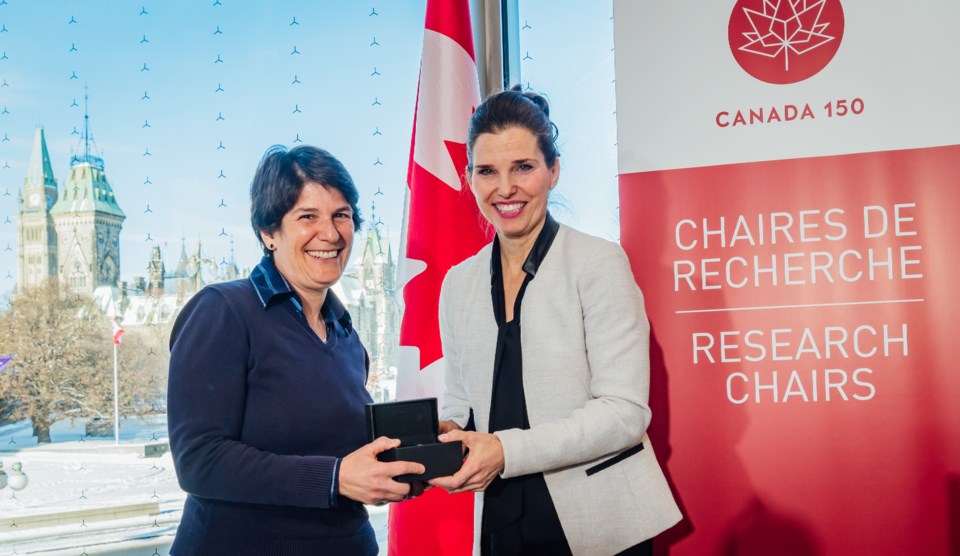A top computer scientist and entrepreneur from Harvard will join the University of B.C. next fall thanks to the federal government’s Canada 150 Research Chairs Program.
The school announced Wednesday that professor Margo Seltzer will take her place as UBC’s Canada 150 research chair in computer systems in September 2018.
The position comes with $1 million in federal funding per year for seven years. The federal program will invest $117.6 million to enhance Canada’s reputation as a global centre for science, research and innovation excellence, in celebration of Canada’s 150th anniversary. It provides Canadian institutions with a one-time investment in an effort to attract top-tier, internationally-base scholars and researchers to Canada.
“Through the Canada 150 Research Chairs initiative, the federal government has given institutions like UBC an invaluable recruitment tool to attract top-tier, international scholars,” said UBC president Santa Ono.
“Particularly in fields like computer science, it is challenging for universities to compete with the private sector for top talent,” he said. “We are thrilled to welcome Margo to UBC and for the potential her recruitment offers for student learning, research and entrepreneurship opportunities in computer science at UBC and in Canada.”
Seltzer is currently a computer science professor and director of the Centre for Research on Computation and Society in the John A. Paulson School of Engineering and Applied Sciences at Harvard.
Her research work has delved into problems that are fundamental to how computer systems work. Some of her past research has been funded by prominent tech companies including Google, Microsoft, IBM, NetApp and Oracle.
Seltzer’s research has covered a range of areas, from developing hardware to make computers runs faster to applications in machine learning that build models to make predictions and applications for computer systems in health care.
In addition to her research work, Seltzer will teach undergraduate students, supervise graduate and post-doctoral fellows and provide mentorship to fellow faculty interested in entrepreneurial opportunities for their research.
Seltzer said she is particularly interested in using computer systems to improve education.
“There is a serious question about how we prepare students to learn and work in the presence of automation,” she said. “For so long, education has been about transferring information to students. Now that’s no longer the problem. We need to teach them how to interpret information and make connections. I look forward to working in an inclusive environment at UBC to tackle this issue.”
Seltzer has as track record of developing both hardware and software for industry. She was previously the chief technical officer at Sleepycat Software, which was acquired by Oracle, a global provider of enterprise cloud computing, in 2006. She has since taken on a role as an architect at the company and plans to continue on in that role at its Vancouver office.
Her plans at UBC include establishing a new computer systems laboratory to foster collaborations between academia and industry, to ensure that research is grounded in addressing real-world problems.
“Part of the reason for establishing the Computer Systems Laboratory at UBC is to develop an industry consortium,” Seltzer said. “We can develop a collaboration between the university and the companies in the area. Businesses will benefit from getting access to our students and the technologies we’re working on, our research will benefit from insight into the most pressing problems confronting industry, and our students will benefit from job opportunities with our industry partners.”



